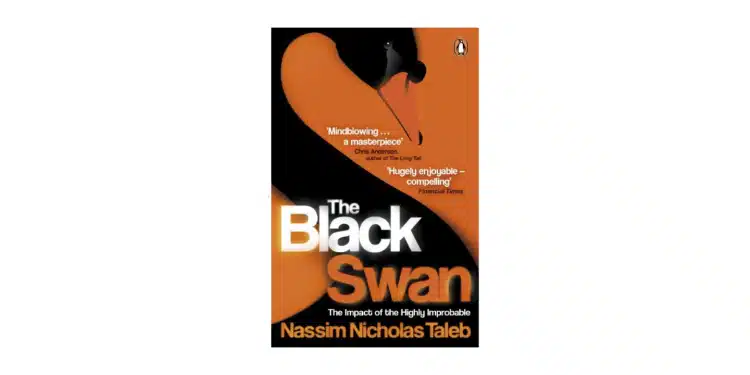The Black Swan
The Impact of the Highly Improbable by Nassim Nicholas Taleb is a book that challenges traditional notions of risk management and prediction. Taleb argues that black swan events, which are rare, unexpected, and high-impact, fundamentally change the equilibrium around us, and that relying on past trends to predict the future is flawed.
Taleb uses the example of the turkey before Thanksgiving to illustrate the paradox of the black swan. The turkey is fed well and cared for every day until the day it is killed and eaten, which is entirely unpredictable from the turkey’s perspective. This example highlights the fallibility of relying on past trends to predict the future and the importance of being aware of narrative fallacy.
Underpinning the book is the notion of statistical unpredictability and how we are fooled into thinking there is causality when certain events are random. The human condition is such that we instinctively want to explain why something happened, but this process can lead to a disconnect between our perception and reality. Additionally, our natural propensity to underestimate the possibility of outliers makes it difficult to forecast accurately.
Taleb cites a study performed by the psychologist Philip Tetlock that revealed experts’ error rates were many times what they had estimated. Those with big reputations were worse predictors than those who had none. This illustrates how difficult it is to predict the future accurately and the need to be sceptical and empirical in our approach.
Taleb argues that the way forward is to accept that it is OK not to know the answer and to keep looking for data that may give more insight. Black swan events are the dominant source of randomness, and while we cannot predict what the next one will be, we should accept their inevitability. Only by doing this can we prepare for them properly and mitigate their impact, making them “grey swans.”
In conclusion, The Black Swan is a thoroughly thought-provoking book that challenges conventional thinking about risk management and prediction. Taleb’s use of personal experiences, case studies, and hypothetical examples make the book engaging and informative. The book’s central message is that we should be sceptical and empirical in our approach, accept the inevitability of black swan events, and prepare for them properly to mitigate their impact.



Get involved!
Comments